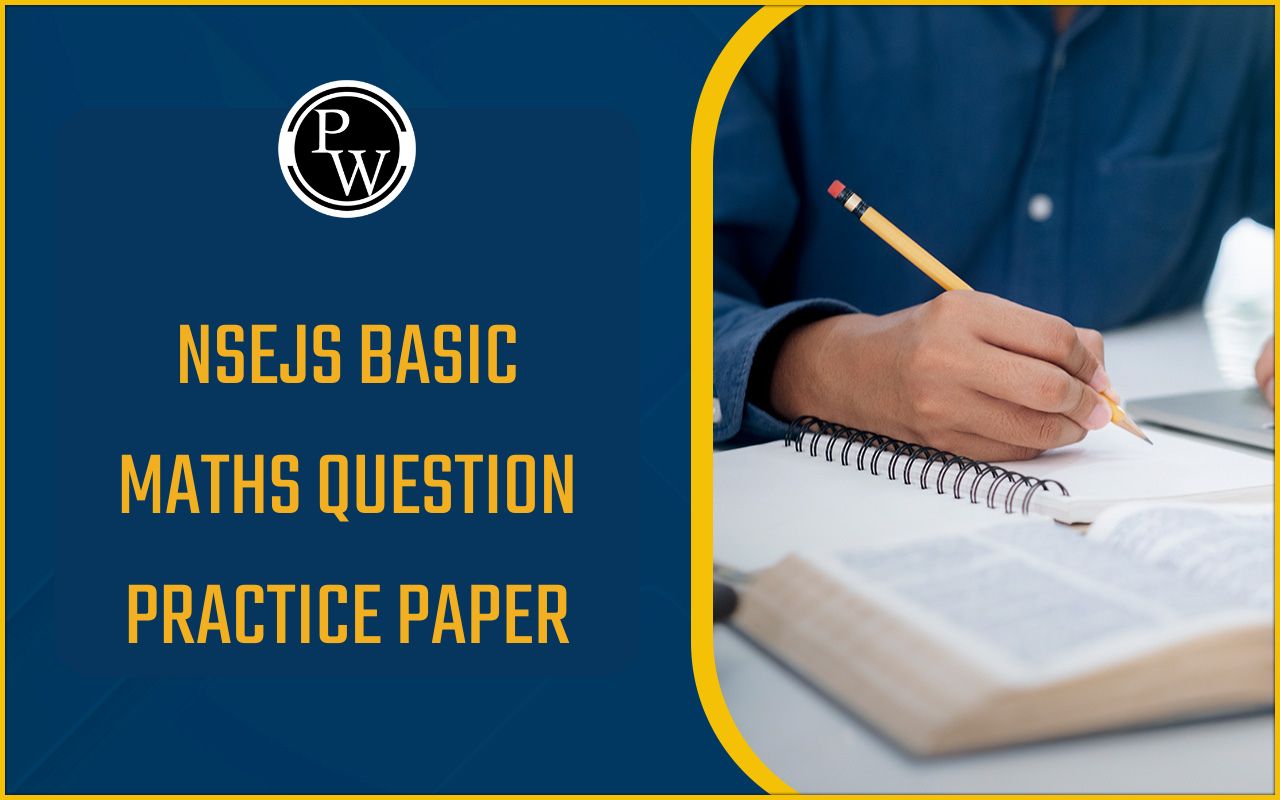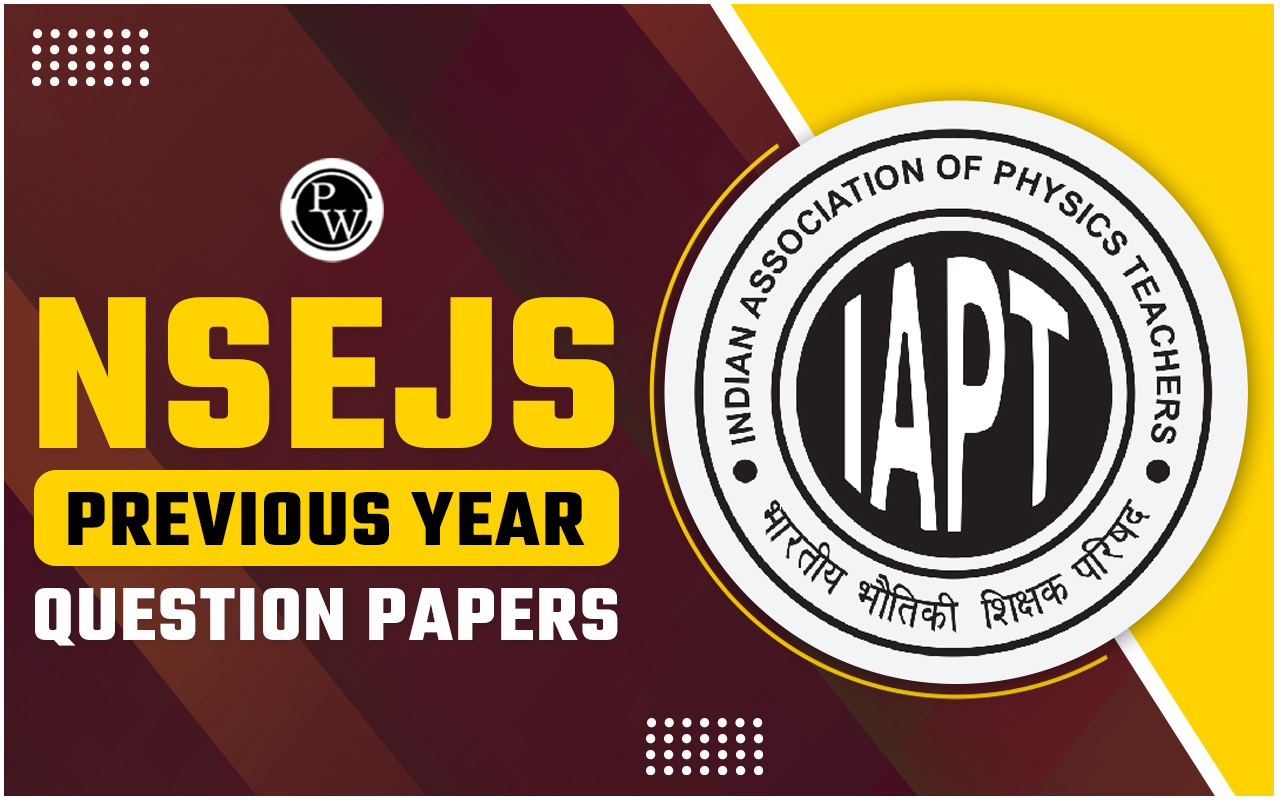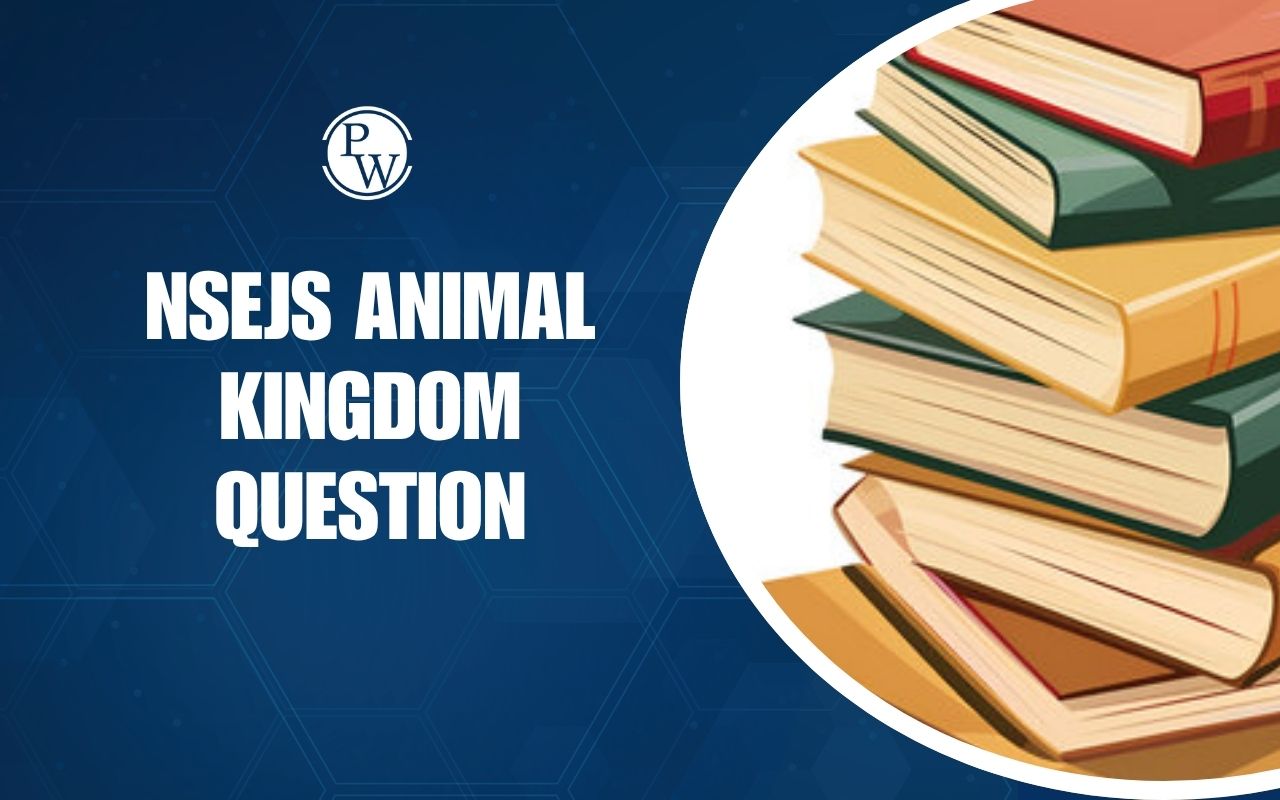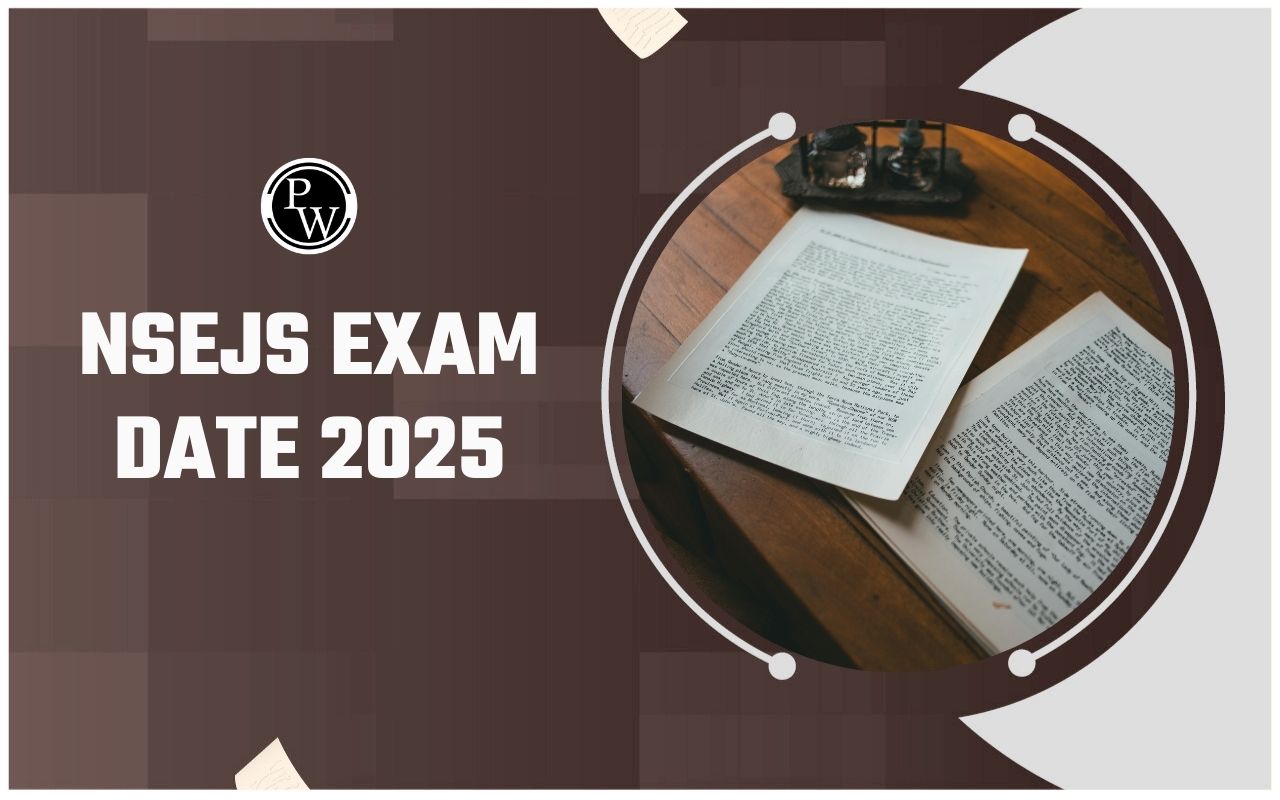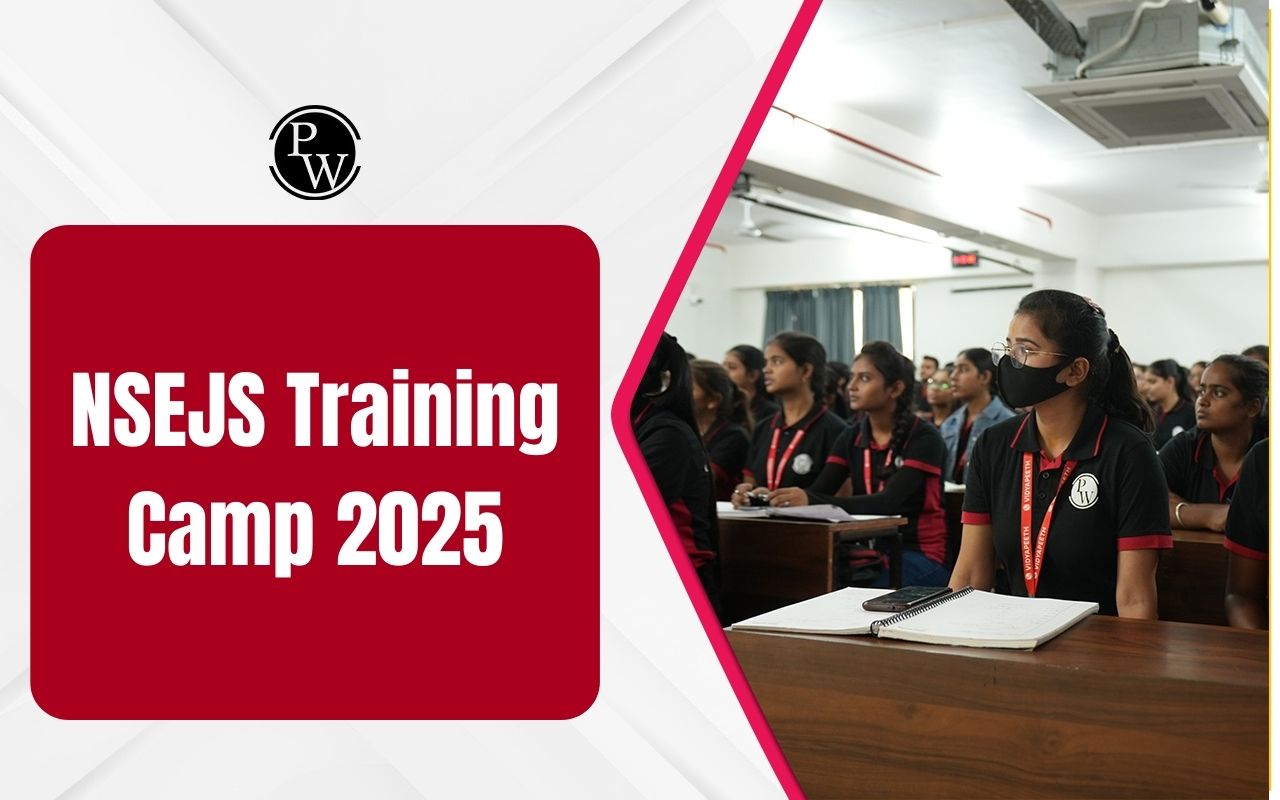
NSEJS Biology Most Important Questions: IAPT (Indian Association of Physics Teachers) is going to conduct the NSEJS 2025-26 for students from classes 8,9 and 10 on 23rd November 2025.
Interested students must start their preparation by covering the NSEJS Syllabus 2025 for questions to be asked from Biology, Chemistry, Physics and Mathematics.
The Biology section of the NSEJS (National Standard Examination in Junior Science) Olympiad covers a broad range of topics from CBSE science syllabus of Classes 8 to 10, with some questions extending to concepts from higher classes
Based on recent exam analyses, previous year trends, and chapter-wise weightage, here are the NSEJS Biology Most Important Questions.
Check: How to Prepare for NSEJS?
NSEJS Biology Most Important Questions PDF
The NSEJS Biology Section is viewed as moderately difficult, comprising roughly 30% of questions that assess basic knowledge, 50% that demand a more thorough comprehension and practical application, and 20% that cover advanced topics extending beyond the regular syllabus.Students should refer to the NCERT Books as it is considered the best source for practice and analyse the previous questions they should refer to the NSEJS question papers and answer keys.
NSEJS Biology Most Important Questions PDF
Study without using the internet
NSEJS Biology Most Important Questions
1. One set (I) of a plant was grown at 12 hours day and 12 hours night period cycles and it flowered while in the other set (II) night phase was interrupted by flash of light and it did not produce flower. Under which one of the following categories will you place this plant (Set II)?
(A) Long day
(B) Darkness neutral
(C) Day neutral
(D) Short day
2. Which of the following statement is/are the correct events in aerobic respiration?
(i) The complete oxidation of pyruvate by the stepwise removal of all the hydrogen atoms, leaving three molecules of O2.
(ii) The complete oxidation of pyruvate by the stepwise removal of all the hydrogen atoms, leaving three molecules of CO2.
(iii) The passing on of the electrons removed as part of the hydrogen atoms to molecular O2 with simultaneous synthesis of ATP.
(iv) The passing on of the electrons removed as part of the hydrogen atoms to molecular O2 with simultaneous synthesis of ADP.
(A) (i) and (iii)
(B) (i) and (iv)
(C) (ii) and (iii)
(D) (ii) and (iv)
3. For the MN-blood group system, the frequencies of M and N alleles are 0.7 and 0.3, respectively. The expected frequency of MN-blood group bearing organisms is likely to be
(A) 42%
(B) 49%
(C) 9%
(D) 58%
4. The given diagram represents the Calvin cycle.
At which stage (inducated by P, Q, R and S) is CO2 incorporated?
(A) P
(B) Q
(C) R
(D) S
5. In a plant, the color of a flower is determined by the conversion of a white pigment into a red pigment that is controlled by the product of gene 'B'. Product of the gene 'A' is responsible for bringing the white pigment into the cell for conversion. The process is schematically represented in the figure. Alleles 'a' and 'b' are non-functional mutant alleles of genes 'A' and 'B', respectively. Two parental plants with white flowers are crossed. F1 progeny have red flowers only. When the F1 progeny is self-pollinated, the F2 progeny has plants that have either red or white flowers.
Considering that the two genes are on two independent chromosomes, what is the expected ratio of the two phenotypes in the F2 progeny?
(A) 3 Red: 1 white
(B) 9 Red: 7 white
(C) 1 Red: 1 white
(D) 15 Red : 1 white
NSEJS Biology Syllabus
- Diversity of Living Organisms: Classification and taxonomy, including the five-kingdom classification system; features of Monera, Protista, Fungi, plants (Algae, Bryophyta, Pteridophyta, Gymnosperms, Angiosperms), and animals (non-chordates up to phyla and chordates up to class level).
- Structural Organization in Animals and Plants: Morphology and anatomy of flowering plants (root, stem, leaf, flower, fruit, seed), animal tissues, and organ systems such as digestive, circulatory, respiratory, nervous, and reproductive systems.
- Cell Structure and Function: Cell theory, prokaryotic and eukaryotic cells, cell organelles, biomolecules (proteins, carbohydrates, lipids, nucleic acids), enzymes, cellular respiration (glycolysis, TCA cycle, electron transport), cell cycle, mitosis, and meiosis.
- Plant Physiology: Transport of water, gases, and nutrients; diffusion, osmosis, water potential; photosynthesis and respiration in plants; and plant-water relations.
- Life Processes: Basic concepts of nutrition, respiration, transport, and excretion in plants and animals.
- Control and Coordination: Tropic movements in plants, plant hormones, nervous system in animals, voluntary/involuntary/reflex actions, and animal hormones.
- Reproduction: Asexual and sexual reproduction in plants and animals, reproductive health, family planning, and related topics.
- Heredity and Evolution: Mendelian genetics, laws of inheritance, sex determination, basic evolution concepts, and DNA-related topics.
- Health and Diseases: Infectious and non-infectious diseases, causes, prevention, immunity, and treatment principles
NSEJS Chemistry Most Important Questions
Benefits of Practising NSEJS Biology Important Questions
Students get several benefits when they practise with the NSEJS Biology Important Questions for the NSEJS Olympiad Exam:
-
Basic to Advance Concept Clarity: Biology questions in NSEJS cover fundamental concepts from Science NCERT Books. Regular practising of NSEJS Biology Important Questions deepens understanding of topics such as cell biology, genetics, human physiology and ecology, which are important topics for the olympiad.
-
Improves Problem-Solving Skills: NSEJS Biology Most Important questions are designed to be challenging and often require application of knowledge rather than memorized concepts. Practising important biology questions helps develop analytical skills and critical thinking necessary to tackle difficult questions.
-
Improves Time Management: By practicing through NSEJS Biology important questions, students learn to manage their time effectively during the exam, deciding which questions to attempt or skip, especially given the negative marking scheme in NSEJS.
-
Builds Consistency and Discipline: Regular practice fosters a disciplined study routine and consistency, which are essential habits for success not only in NSEJS but also in future competitive exams like JEE and NEET.
-
Boosts Confidence and Reduces Exam Anxiety: Familiarity with the types of questions asked in NSEJS Biology section builds confidence and reduces exam-related stress, enabling students to perform better on the day of the test
NSEJS Biology Most Important Questions FAQs
Where Can I Get the NSEJS Biology Most Important Questions?
Why Should Students Practice the NSEJS Biology Important Questions?
Is the NSEJS Biology Most Important Question PDF free for download?
How many questions are asked in the NSEJS 2025-26?
What is the difficulty level of the Biology section in NSEJS Exam?


